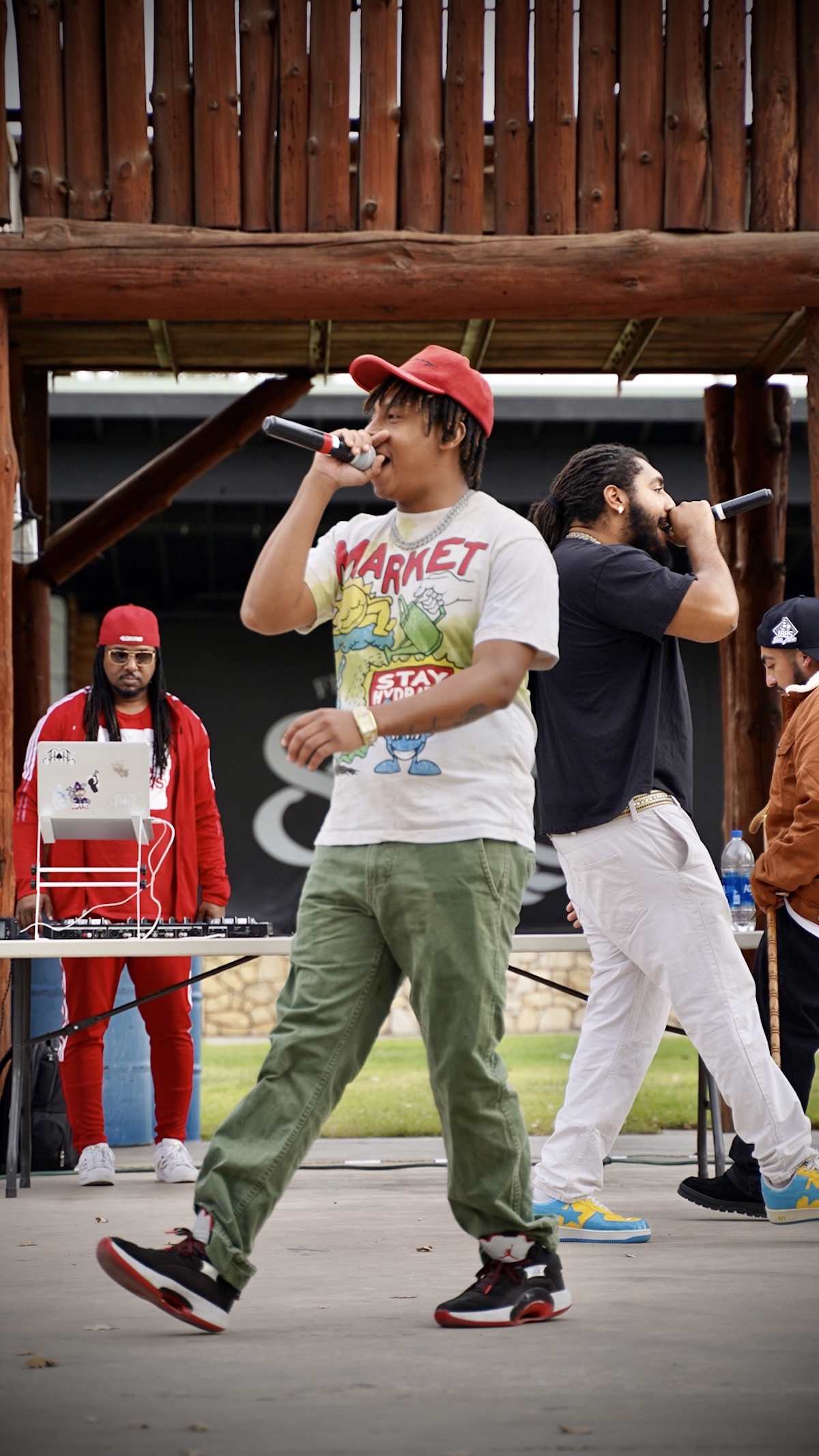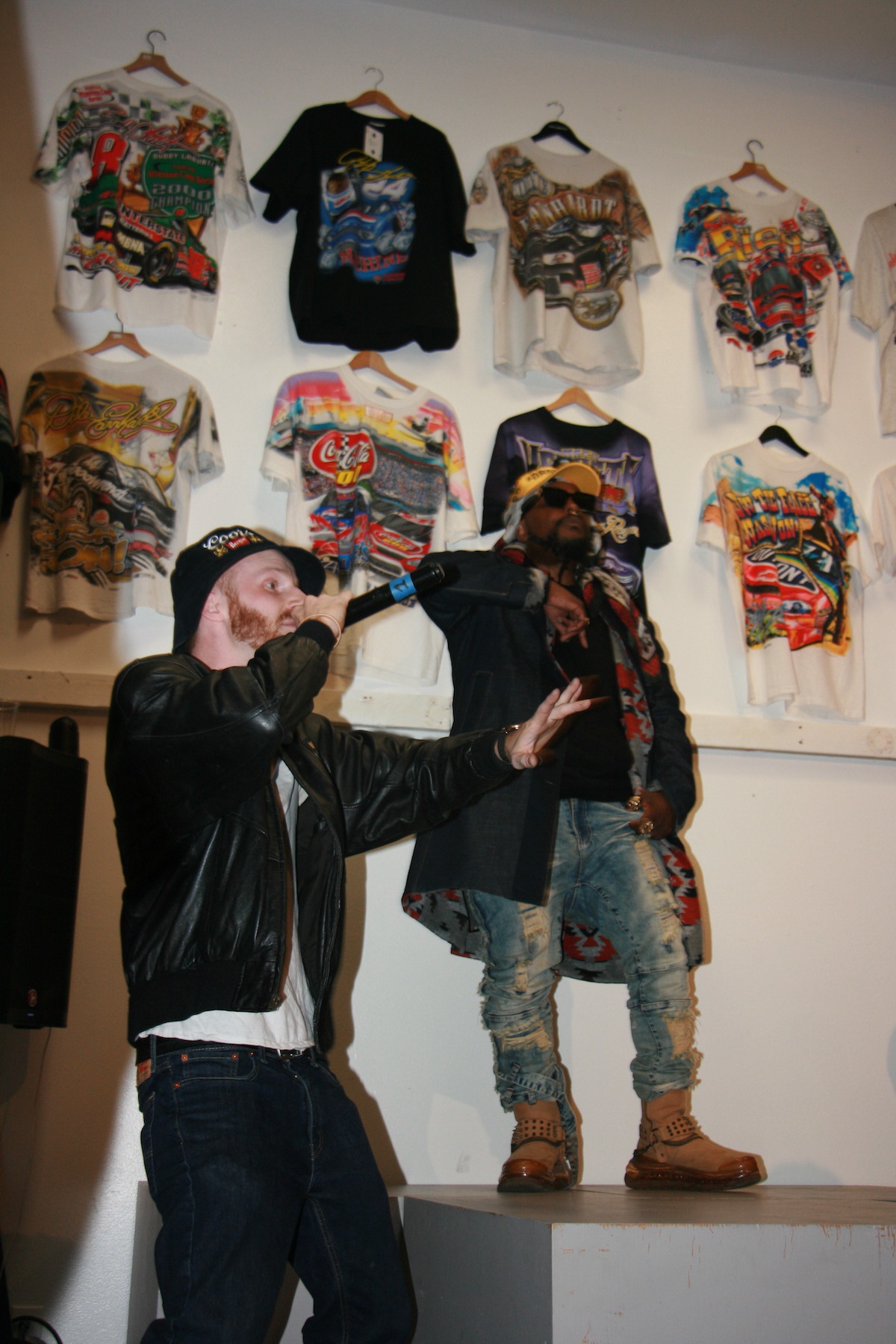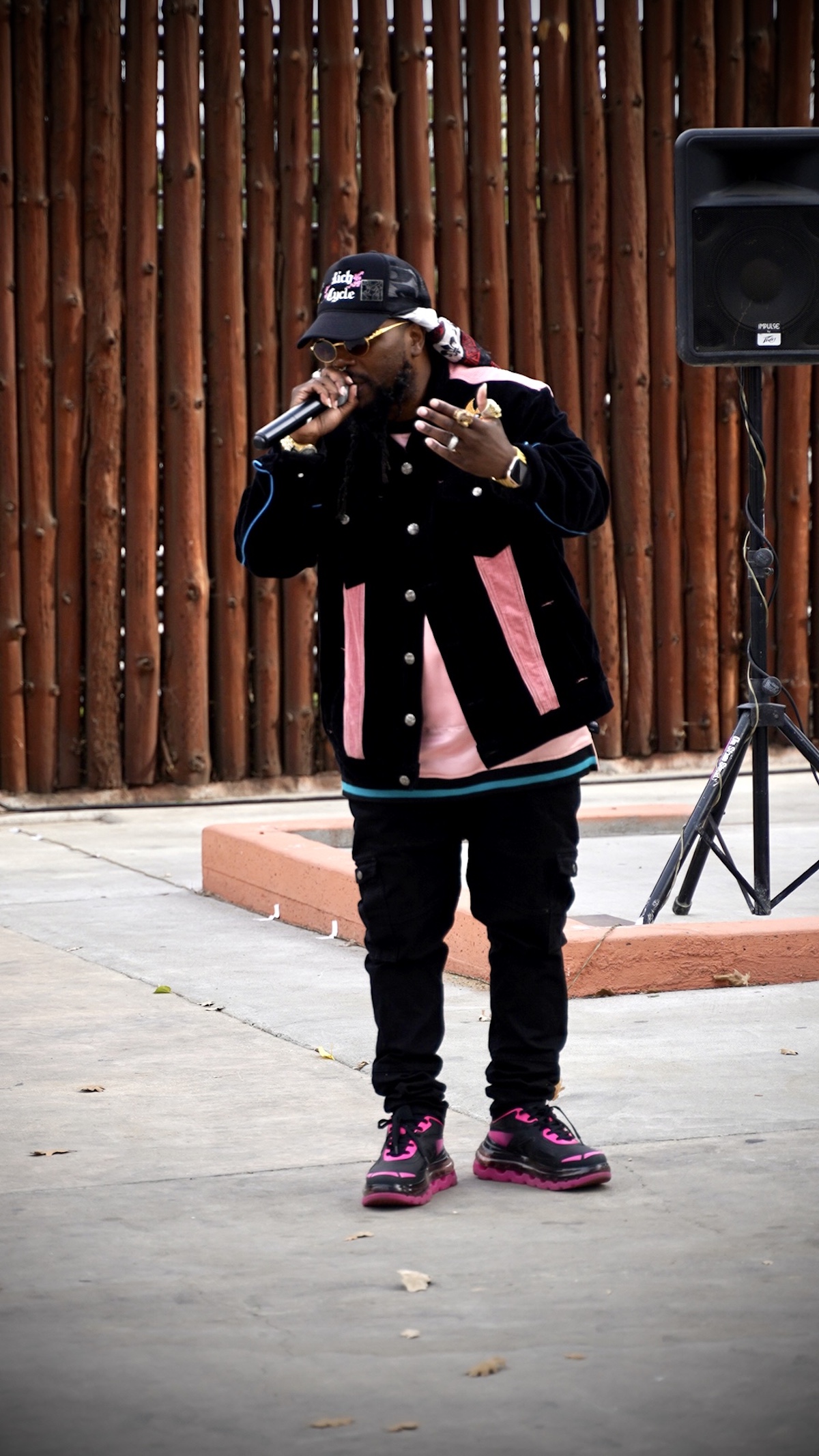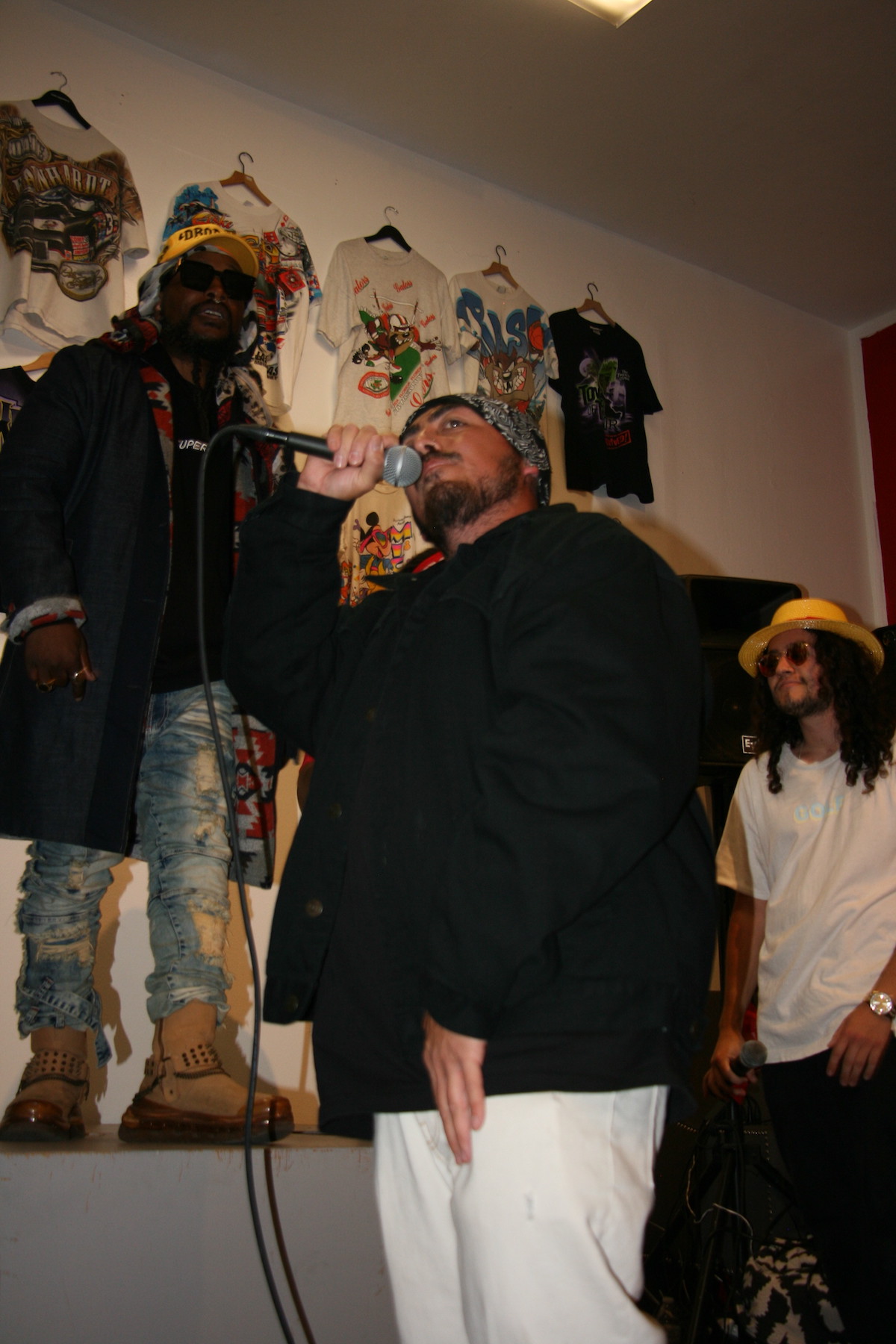Local artist creates independent music label to foster hip-hop along the Central Coast
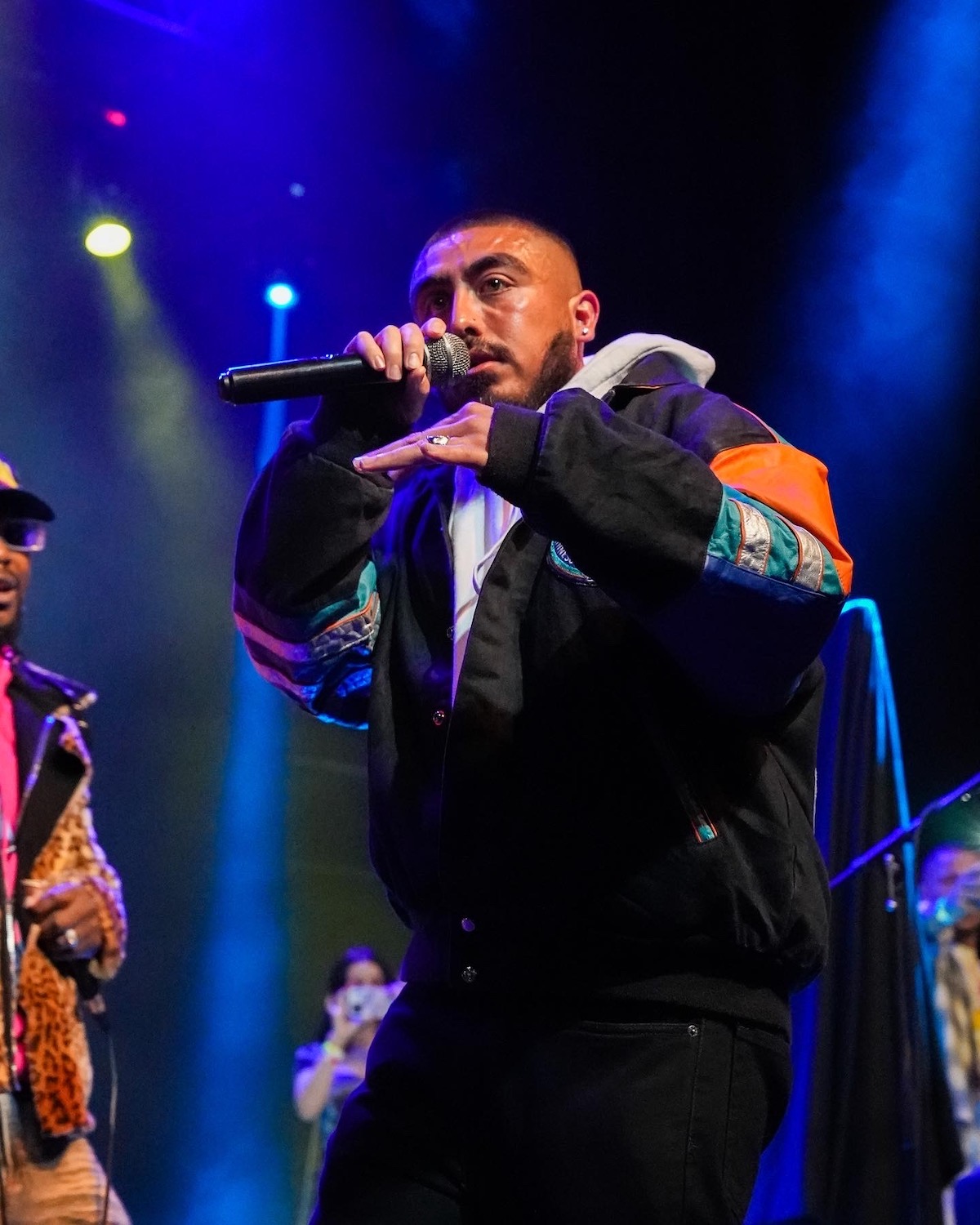
From touring with Kid Cudi to working with Pharell Williams, Nipomo-native Lorde Sanctus lived in Los Angeles for 18 years to follow his dream of working in the music industry. However, the purpose of his career changed after a meeting with a producer in Los Angeles.
“They said, you know, ‘we’ve seen you’ve been in all the magazines [and] you’ve been on all the blogs, but if we went to your hometown and asked 100 people who knew you, how many of them would say they did?’ He was like ‘if it’s less than 90 people, you come back when it’s 90 or more,’” Sanctus said. “At the time, it was literally less than five people.”
Sanctus realized the Central Coast did not have the same platform to become a cultural haven for hip-hop music as other bigger industrial areas in California, including the Bay Area and Los Angeles. So, he moved back home and founded Connect the Coast in 2019.
Connect the Coast is a web three, music label, media company and collective based on the Central Coast. Sanctus said he wanted Connect the Coast to show what SLO has to offer beyond “wine tasting.”

“I feel like if you look at things, like enjoy SLO or other things like that, you never really see black people or brown people; there’s a lot of youth cultures and subcultures out here that I think have more dominant voices [in SLO’s culture scene]. But they like to paint it as no worse, this place that’s stuck in the ‘50s, and that’s not the case,” Sanctus said. “When I came back I just got tired of telling people what to do, I thought I would show them what to do and Connect the Coast could be the vehicle.”
Connect the Coast was created with the goal of becoming the next Complex Con, a platform for artists in a genre that often goes unnoticed on the Central Coast to come together and connect with people in the music industry. In order to work towards that, Sanctus said that Connect the Coast needs to create original content.
Currently, the label has signed eight local rap artists, including Jay Reilly, $horty Duwop, D BANKS, CAV, Lorde Sanctus, Mr. Butta, Central Coast G.I.A, Niko Cochise, and released an album, “Good Day: The Mixtape,” in 2022.
“It’s kind of the first attempt at a decentralized record label where the artists have most of the control,” Sanctus said.
 CAV | Courtesy Lorde Sanctus
CAV | Courtesy Lorde Sanctus Niko Cochi$e | Courtesy Lorde Sanctus
Niko Cochi$e | Courtesy Lorde Sanctus Lorde Sanctus and Jay Reilly performing at Milk Room in October 2022. | Courtesy Lorde Sanctus
Lorde Sanctus and Jay Reilly performing at Milk Room in October 2022. | Courtesy Lorde Sanctus Lorde Sanctus | Courtesy Lorde Sanctus
Lorde Sanctus | Courtesy Lorde Sanctus $horty Duwop performing at Milk Room in October 2022. | Courtesy Lorde Sanctus
$horty Duwop performing at Milk Room in October 2022. | Courtesy Lorde Sanctus Jay Reilly performing at Frog and Peach Pub in January. | Courtesy Lorde Sanctus
Jay Reilly performing at Frog and Peach Pub in January. | Courtesy Lorde Sanctus
Sanctus originally began his efforts in 2018 when he wanted to discover more about the Central Coast rap scene.
“For a year, I just went to every city on the coast and I would ask as many people as I could, ‘who’s the best rapper here?'” Sanctus said. “I [would] go up and down from Thousand Oaks, Simi Valley, up to almost Salinas.”
The question Sanctus asked in each city led him to create the “Top 5” list in 2019, in which he profiled and ranked central coast rappers on Connect the Coast’s Instagram.
“I felt like, for there to be a scene, we had to set a standard and at the time there was just a lot of noise. There’s a lot of people who were saying they were the best rappers, but there was no criteria to really judge,” Sanctus said. “So I wanted to create that criteria. And I did that. And that started a huge conversation all the way up and down the coast.”
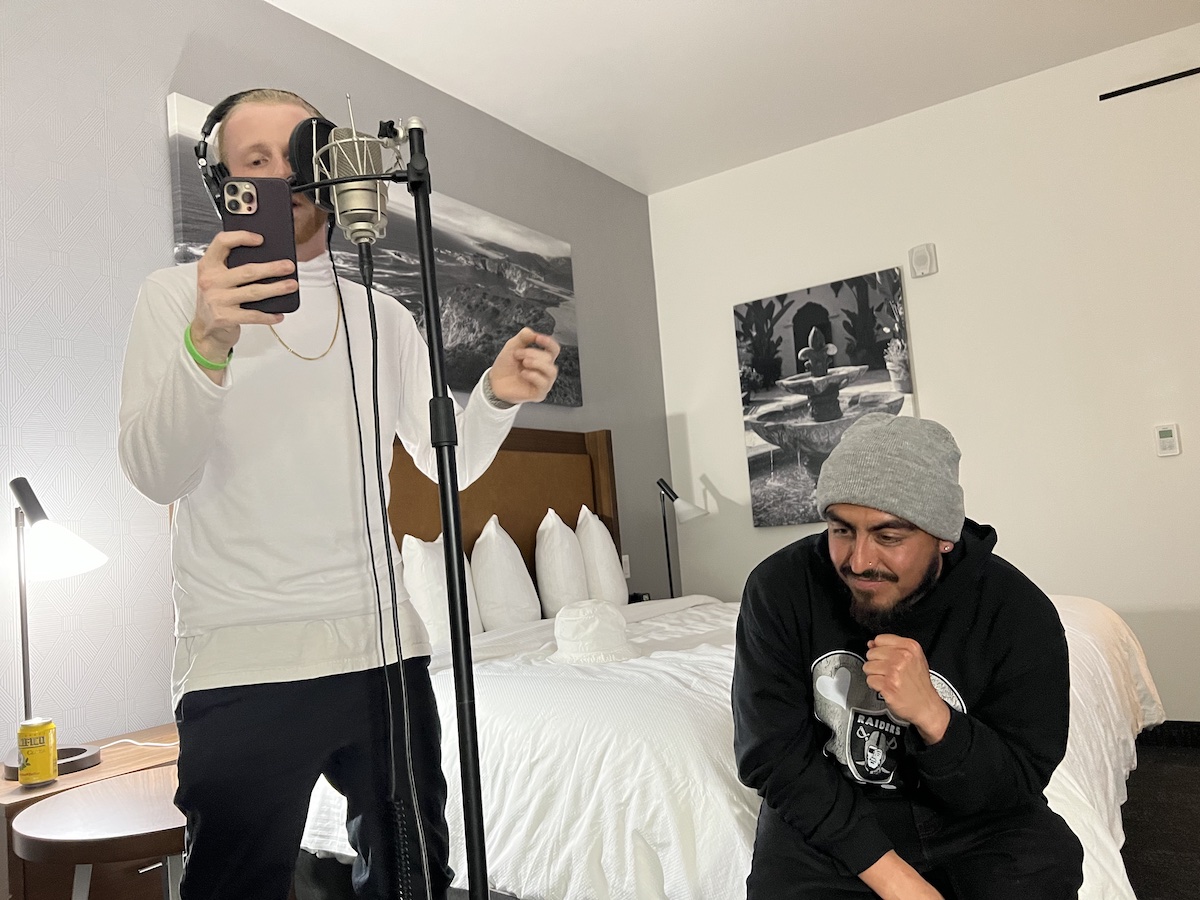
The “Top 5” list branded Connect the Coast as a social media outlet for underrepresented creatives, but now they’re also making music. Since the start, the label has come a long way from where it began, according to Sanctus. Signed artists often collaborate on music and are given opportunities to travel and perform live at local venues.
“We’ve been able to track our progression. Every show there’s more people, there’s more people that know the words and it was really dope to see,” Sanctus said. “One of the artists, Jay Riley … has a residency at Frog and Peach the last Wednesday of every month. That was one of the last shows we did and one of the biggest Frog and Peach shows we’ve ever had.”
Despite his success being a musician in the Los Angeles area, Sanctus said there is no reward greater than being a mentor for these artists in the central coast and helping them get their foot in the door within the industry.
“I kind of had to take people under my wing and show them the ropes [of the] industry, because it was really hard to do by myself without any mentors out here,” Sanctus said. “[Now] a lot of them can’t walk down the streets locally without people recognizing them, and I feel like that to me, in four years by this time, that’s insane because there’s people that have been here for 25 years trying to do the same thing.”


